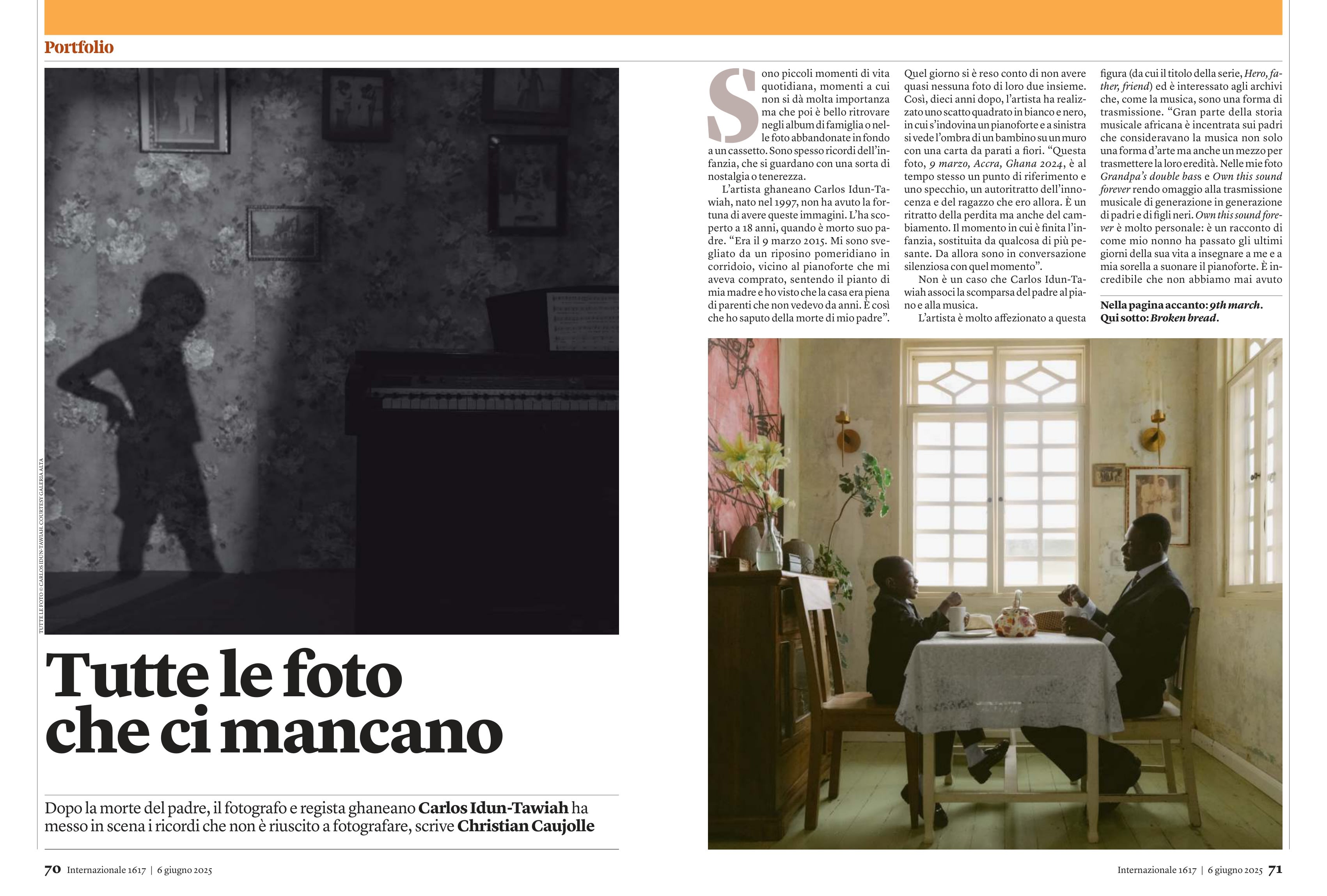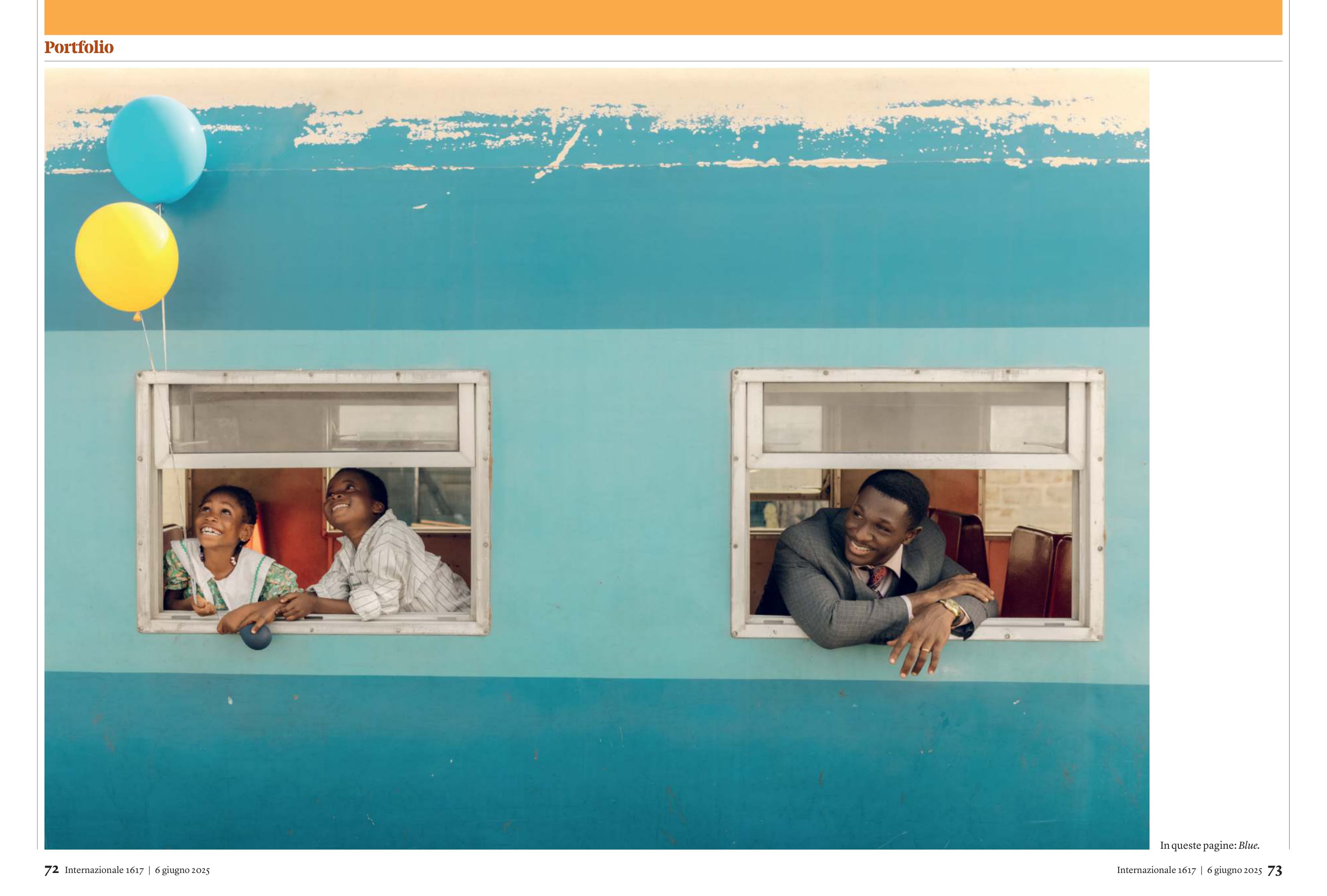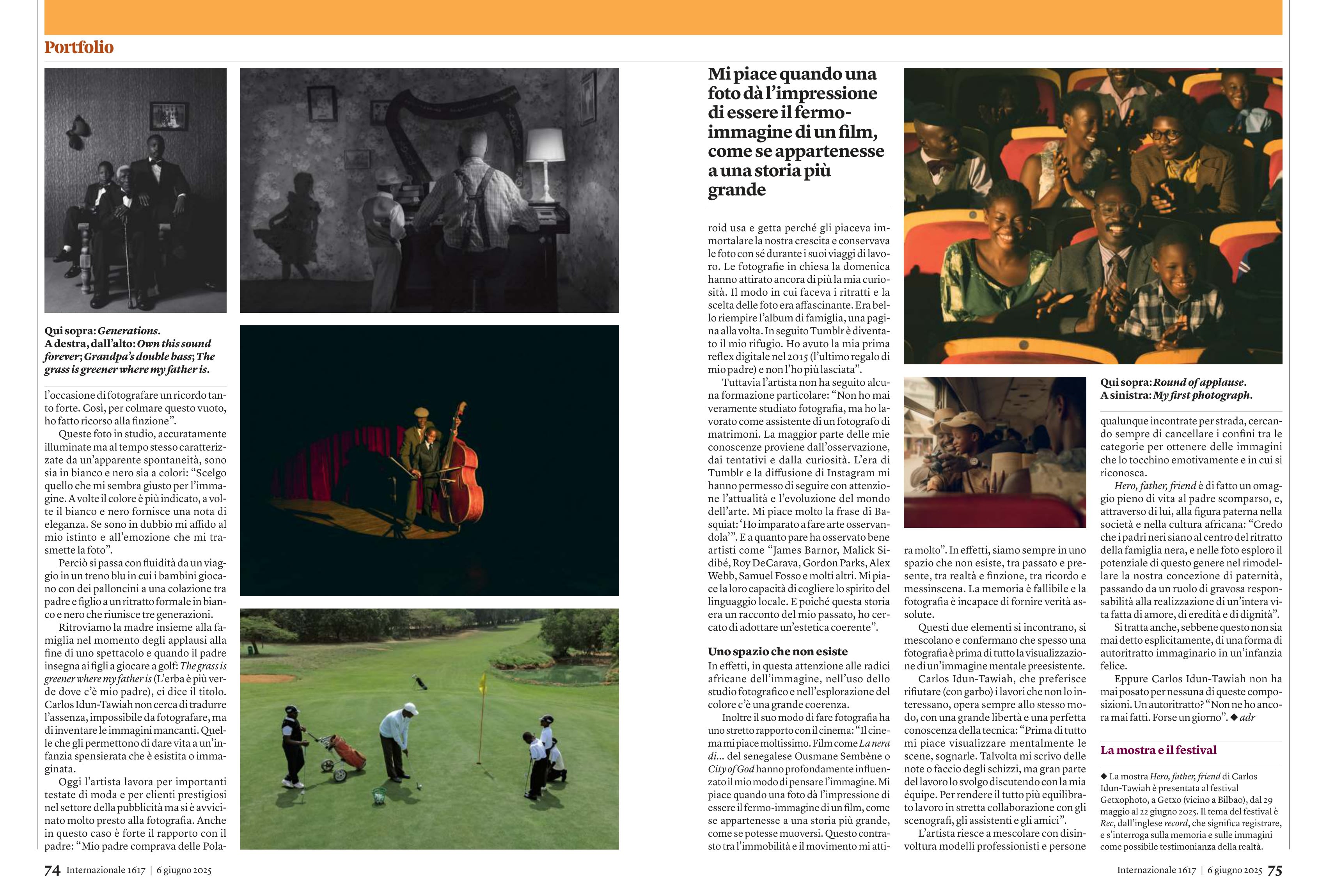


All the Photos We're Missing
Carlos Idun-Tawiah, the Ghanaian photographer and filmmaker, staged the memories he couldn't photograph after his father's death, writes Christian Caujolle.
They are small moments of everyday life, moments we don't give much importance to but that are nice to find later in family albums or in photos abandoned at the bottom of a drawer. They are often childhood memories, which we look at with a kind of nostalgia or tenderness.
The Ghanaian artist Carlos Idun-Tawiah, born in 1997, wasn't fortunate enough to have these images. He discovered this at 18, when his father died. "It was March 9, 2015. I woke up from an afternoon nap in the hallway, near the piano he had bought me, hearing my mother's crying and saw that the house was full of relatives I hadn't seen in years. That's how I found out about my father's death".
That day, he realized he had almost no photos of the two of them together. So, ten years later, the artist created a square black and white shot, in which you can make out a piano and on the left, you can see the shadow of a child on a wall with floral wallpaper. "This photo, March 9, Accra, Ghana 2024, is both a reference point and a mirror, a self-portrait of innocence and the boy I was then. It's a portrait of loss but also of change. The moment when childhood ended, replaced by something heavier. Since then, I've been in silent conversation with that moment".
It's no coincidence that Carlos Idun-Tawiah associates his father's disappearance with the piano and music.
The artist is very attached to this figure (hence the title of the series, Hero, father, friend) and is interested in archives which, like music, are a form of transmission. "Much of African musical history is centered on fathers who considered music not only an art form but also a means of transmitting their legacy. In my photos Grandpa's double bass and Own this sound forever, I pay homage to the musical transmission from generation to generation of Black fathers and sons. Own this sound forever is very personal: it's a story of how my grandfather spent the last days of his life teaching me and my sister to play the piano. It's incredible that we never had..."
We find the mother together with the family at the moment of applause at the end of a show and when the father teaches his children to play golf: The grass is greener where my father is, the title tells us. Carlos Idun-Tawiah doesn't try to translate absence, impossible to photograph, but to invent the missing images. Those that allow him to bring to life a carefree childhood that existed or was imagined.
Today, the artist works for major fashion publications and prestigious clients in the advertising sector, but he approached photography very early. Again, the relationship with his father is strong: "My father used to buy disposable Polaroids because he liked to capture our growth and kept the photos with him during his work trips. The photographs in church on Sundays attracted my curiosity even more. The way he took portraits and chose photos was fascinating. It was nice to fill the family album, one page at a time. Later, Tumblr became my refuge. I got my first DSLR in 2015 (my father's last gift) and I haven't put it down since".
However, the artist didn't follow any particular training: "I never really studied photography, but I worked as a wedding photographer's assistant. Most of my knowledge comes from observation, trial and error, and curiosity. The Tumblr era and the spread of Instagram allowed me to closely follow current events and the evolution of the art world. I really like Basquiat's phrase: 'I learned to make art by observing it.'" And apparently he observed well artists like "James Barnor, Malick Sidibé, Roy DeCarava, Gordon Parks, Alex Webb, Samuel Fosso and many others. I like their ability to capture the spirit of local language. And since this story was a narrative of my past, I tried to adopt a consistent aesthetic".
A Space That Doesn't Exist
Indeed, in this attention to African roots of imagery, in the use of the photographic studio and in the exploration of color, there is great consistency.
Moreover, his way of doing photography has a close relationship with cinema: "I love cinema. Films like Black Girl by Senegalese Ousmane Sembène or City of God have deeply influenced my way of thinking about images. I like when a photo gives the impression of being a still from a film, as if it belonged to a larger story, as if it could move. This contrast between stillness and movement attracts me a lot." In fact, we are always in a space that doesn't exist, between past and present, between reality and fiction, between memory and staging. Memory is fallible and photography is incapable of providing absolute truths.
These two elements meet, mix, and confirm that often a photograph is first and foremost the visualization of a pre-existing mental image.
Carlos Idun-Tawiah, who prefers to (politely) refuse work that doesn't interest him, always operates in the same way, with great freedom and perfect knowledge of technique: "First of all, I like to mentally visualize scenes, dream them up. Sometimes I write notes or make sketches, but much of the work is done by discussing with my team. To make it all more balanced, I work closely with set designers, assistants, and friends".
The artist manages to effortlessly mix professional models and ordinary people met on the street, always trying to erase the boundaries between categories to obtain images that touch him emotionally and in which he recognizes himself.
Hero, father, friend is in fact a tribute full of life to the deceased father, and, through him, to the father figure in African society and culture: "I believe that Black fathers are at the center of the portrait of the Black family, and in the photos I explore the potential of this genre in reshaping our conception of fatherhood, moving from a role of burdensome responsibility to the realization of an entire life made of love, legacy, and dignity".
It is also, although this is never explicitly stated, a form of imaginary self-portrait in a happy childhood.
Yet Carlos Idun-Tawiah has never posed for any of these compositions. A self-portrait? "I've never done one yet. Maybe someday".
The Exhibition and Festival
The exhibition Hero, father, friend by Carlos Idun-Tawiah is presented at the Getxophoto festival, in Getxo (near Bilbao), from May 29 to June 22, 2025. The theme of the festival is Rec, from the English word record, which means to record, and questions memory and images as possible testimony of reality.
